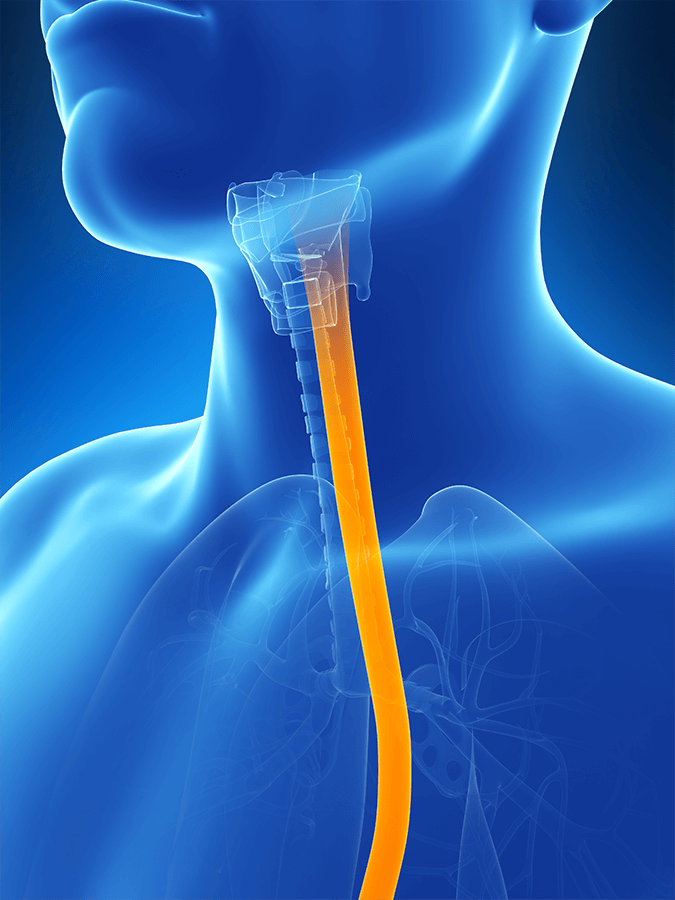Tightness in the throat is a familiar sensation for some. It can be an uncomfortable, painful, and even frightening feeling. Sometimes, the tightness is short-lived and may be attributed to anxiety or an allergic reaction. However, persistent tightness that worsens over time may be the result of esophageal stricture. Conditions such as gastroesophageal reflux (GERD) may cause damage to the esophageal tissue over time, resulting in a buildup of scar tissue that makes swallowing progressively more difficult. Even in the case of benign esophageal stricture, treatment should still be sought. Not only will the tightness worsen over time, but the underlying issue that is leading to your throat tightness and pain should be addressed as well. Here are some of the common tests used to diagnose esophageal stricture, as well as the most common and effective forms of treatment:
Diagnosing Esophageal Stricture
- Barium Swallow – After swallowing barium, x-rays are taken to show the narrowing of the esophagus
- Endoscopy – A thin scope with light and camera, known as an endoscope, is guided into the esophagus in order to visualize the narrowing. This procedure is generally performed under a sedative and local anesthetic.
Treating Esophageal Stricture
- Proton Pump Inhibitors (PPI)– These medications are typically used to treat the most common cause of esophageal stricture: GERD. By alleviating the symptoms of GERD, they are thereby able to reduce the pain, inflammation, and irritation in the throat.
- Dilation – In this procedure, the esophagus is dilated through one of many possible methods, such as using a weighted dilator passed through the mouth and into the esophagus. This treatment is typically performed either with sedation or a local anesthetic. Depending on the severity of the stricture, it may need to be performed multiple times.
- Surgery – In rare cases in which the stricture cannot be adequately dilated or strictures continue to return after repeated dilations, surgical treatment may be necessary.
Once treated, the prognosis of esophageal strictures is quite good. While some may return and require subsequent treatment, most patients may resume their normal diet and routine. In order to prevent the initial development of esophageal strictures, there are some precautionary measures that you can take. Use caution to avoid accidental ingestion of corrosive substances, and if you suffer from frequent or prolonged heartburn, see your doctor for a diagnosis and treatment of GERD. If the appropriate steps are taken to prevent esophageal stricture or to treat it once it occurs, the condition should have minimal impact. If you experience difficulty swallowing and inflammation or irritation of the throat, it may be time to speak with a specialist about the possibility of esophageal stricture. At Gastroenterology Associates, we have several gastroenterology physicians. who are qualified in the identification and treatment of the condition. Simply call our office directly at (225) 927-1190.


